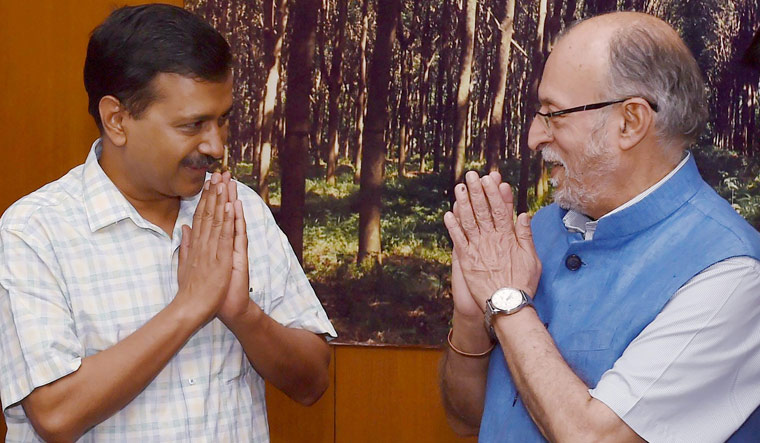The Supreme Court on Thursday delivered a split verdict on a batch of petitions challenging various notifications, including on control of services and power of Anti-Corruption Bureau (ACB), in the ongoing tussle between the Delhi government and the Centre.
The two-judge bench comprising Justices A.K. Sikri and Ashok Bhushan differed in the aspect of power of "services" in the verdict. The issue of "services" has been referred to a larger bench now. The bench had on November 1 last year reserved its verdict on the petitions challenging the notifications issued by the Narendra Modi government and the AAP government in Delhi.
While Justice Sikri held that transfers and posting of officers of and above the rank of Joint Secretary are under the powers of the Delhi LG, other officers are under the control of the Delhi government. However, Justice Bhushan dissented to hold that "services" were totally outside the purview of the Delhi government, reported Live Law.
At the same time, the bench was unanimous regarding other issues. According to Live Law, the Supreme Court declared the competent authority in respect of the contentious issues as follows:
1. Anti-Corruption Bureau under the Centre; the Delhi government has no police powers
also read
2. Commission of Enquiry under the Centre
3. Electricity Board under the Delhi government
4. Power to appoint Public Prosecutor with the Delhi government
During the hearings, the Centre had told the Supreme Court that the lieutenant governor (LG) had the power to regulate services in Delhi. The powers are delegated to the administrator of Delhi and the services can be administered through him, it had said.
The Centre also said that unless the president of India expressly directs, the lieutenant governor, who is the administrator of Delhi, cannot consult the chief minister or the council of ministers.
On October 4 last year, the Delhi government had told the Supreme Court that it wanted its petitions relating to governance of the national capital be heard soon as it did not want "stalemate to continue in administration".


